Book Launch: The Perversity of Gratitude – An Apartheid Education
Date: 23 September 2024Format: Online DialogueSpeakers: Prof. Grant Farred & Prof. Crain SoudienIn this intellectually rich session, author Prof. Grant…
Discover your future at Cornerstone Institute’s School of Education. We offer PGCE programmes in the Foundation Phase, Intermediate Phase, and Senior & FET Phase, as well as a Bachelor of Arts degree with a major in Alternative Education. All programmes are currently fully online. Shape your success with us.
The completion of the PGCE within one year is only considered feasible if a student has already fulfilled the majority of the required prerequisite undergraduate (teaching subject) modules in their previous qualification. Exceptions may be considered solely in cases where there is a single
prerequisite undergraduate module (related to the subject specialisation) that is stipulated on the student’s acceptance letter for completion. Under such circumstances, the student may then be granted permission to concurrently fulfill this module alongside the obligatory PGCE modules. This is done to satisfy the admission criteria for a particular teaching subject.
In contrast, students who have multiple prerequisite undergraduate (teaching subject) modules to complete, in addition to the PGCE modules, are required to extend the duration of their PGCE qualification to two or more years. This enables them to adeptly handle the demands of both
theoretical and practical components, leading to a more comfortable adherence to deadlines and staying within the appropriate credit limits of the qualification.
It is essential for students to be aware that each module encompasses various assessments. Consequently, registering for more than five modules per semester may lead to an overwhelming amount of pressure, taking into account notional hours, credit limitations, and the necessity to meet deadlines based on all the required assessments per semester. Hence,
considering all the above-mentioned information and various circumstances, the PGCE is structured as a one-year qualification for full-time students, while part-time students would follow a two-year timeline.
Students who exceed the maximum number of credits allowed per semester and year require explicit authorisation from the Deputy Dean of the School of Education as well as the Executive Dean. In such cases, you are required to please reach out to our School of Education Faculty Officer at sharon-leee@cornerstone.ac.za. They will furnish you with a form to complete, comprehensively evaluating your rationale and situation. The decision regarding your ability to complete within a year will be determined through this process.
It is important to emphasize that a student's subject specialisation is contingent upon meeting specific admission requirements outlined and governed by the Department of Higher Education & Training (DHET). This determination is explicitly communicated in the Acceptance Letter, indicating whether the stipulated requirements have been fulfilled. Cornerstone Institute offers specific prerequisite undergraduate modules designed to fulfill the admission requirements for certain teaching subjects, specifically in English, Afrikaans, isiXhosa (from 2025), Mathematics, and Life Skills. However, it should be noted that for Intermediate Phase students, prerequisite undergraduate modules for admission into Science & Technology and Social Science are not provided.
If students desire to pursue Science & Technology or Social Science as their teaching subject specialisation instead of Mathematics or Life Skills, they have the option to fulfill the required prerequisite modules externally for non-degree purposes to meet the admission requirements.
Following a thorough assessment of your academic transcripts by our admission officers upon the successful submission of your application, your eligibility for specific subject specialisations, whether meeting or not meeting admission requirements, will be conclusively determined and explicitly outlined in your Acceptance Letter.
We do not have a consolidated list of all prescribed readings and textbooks for the various PGCE modules in one document. However, it's essential to note that each module outline will specify the required readings, including important and relevant chapters from certain books recommended by the lecturer.
These crucial readings, necessary for assignments, tests, or quizzes, will be accessible under the resources tab on Funda. If you have questions about whether to purchase specific textbooks or if the provided prescribed readings under the resource tab are sufficient, you are encouraged to contact your lecturer. Lecturers may recommend additional readings to enhance your understanding of assignments and broaden your knowledge as a student.
For specific inquiries, you can communicate with your lecturers via email; their Cornerstone email addresses are available on the module outline.
Rest assured that none of the PGCE modules require formal examinations; their assessment is primarily based on assignments, occasionally supplemented by timed tests. However, it's important to note that there might be online exams for students who are required to complete specific prerequisite undergraduate Sociology or Psychology modules to fulfill the admission requirements for the subject specialisation of Life Skills.
Unfortunately, this will not be permitted and is therefore strongly advised against. Undertaking all three teaching practicals concurrently within a single semester poses considerable challenges due to the distinct durations and sequential nature of these practical requirements, each
occurring at different primary schools. We believe that permitting this will prevent proper reflection needed after each TP experience and integration of academic and practical components of the programme.
To elaborate, Practical A is typically recommended to be completed fairly early in your studies, Practical B midway, and Practical C in the last semester of your studies. Considering these recommendations and guidelines, attempting to complete all three practicals consecutively within the same semester is definitely not feasible within the suggested timeline.
During critical circumstances, emergencies, or unforeseen challenges, when completing all three practicals in one semester becomes the sole viable option, we may accommodate such requests on a case-by-case basis. In such situations, it is essential to communicate and seek guidance
from our Teaching Practice Coordinator at: anelc@cornerstone.ac.za. She possesses the expertise to offer assistance, clarification, and will evaluate your circumstances to determine whether special permission can be granted, providing confirmation accordingly.
Your online tutorial timetable is available on the School of Education Plenary site under the "Resources" section tab on Funda.
All PGCE modules are bound to specific semesters. If a module is designated for the 1st semester, it can only be completed during that period, and similarly for 2nd semester modules. Completing a 1st semester module in the 2nd semester or vice versa is not allowed, as each module is exclusively offered in the specified semester.
It's important to note that the only exceptions to this rule are the prerequisite modules, including English for Education A & B, Afrikaans for Education A & B, isiXhosa for Education A & B, Statistics for Education A & B, and the three teaching practicals. These Teaching Practicals can also be completed in any semester, 1st or 2nd, as long as they are done sequentially in the correct order (A, B, and lastly C in the last semester of your studies).
Prerequisite modules with both A & B components, such as English for Education A & B, Afrikaans for Education A & B, Statistics for Education A & B, isiXhosa for Education A & B, span two semesters. The A & B components cannot be completed simultaneously in a single semester. For example, you can complete English for Education A in the 1st semester and then finish the B component in the following semester or in the 1st or 2nd semester of the next academic year.
We encourage all students to prioritise attending all online tutorials as it provides an opportunity for real-time interaction with lecturers to discuss the module and its content. However, we understand that in some cases, missing tutorials may be unavoidable, especially for students abroad in different
time zones. In such instances, rest assured that all tutorials are prerecorded and made accessible for students to view later under the "Khuluma" tab within the recordings section. Your lecturer will use multiple other platforms to keep in touch with you in between tutorials. We also urge you to make every effort to attend the live plenary sessions on Khuluma for all our PGCE students and staff on Thursdays from 5pm to 5.30pm on the School of Education site on Funda.
To access the tutorial, please follow these steps:
To access the recording, follow these steps:
Explore messages in the Funda chat tabs for potential WhatsApp support groups initiated by fellow students (most likely the appointed class representative). Request to join these groups, or contact your lecturer to be directed to the class representative for your specific module. The class representative will facilitate your inclusion in the group chat focused on support, guidance, and important matters. Each module designates a class representative, usually sharing the WhatsApp group link during the 1st or 2nd tutorial. Please be vigilant about scammers trying to use our sites for criminal ends.
In the event of dissatisfaction with the resolution or handling of an issue, such as a grade, subject matter, or perceived display of biased behaviour by the lecturer, the initial course of action is to engage in direct consultation with the lecturer via email. If concerns persist, the matter can be escalated by reaching out to the School of Education Faculty Officer via email at sharon-leee@cornerstone.ac.za for further attention and resolution.
For inquiries regarding any outstanding modules and to assess your eligibility for graduation, please reach out to the Registrar’s Department at helpdesk@cornerstone.ac.za. Additionally, to systematically monitor your progress, it is advisable to mark completed modules on your curriculum grid as you finish them. This approach assists in clearly identifying the modules that have been successfully completed and those that still require completion.
Certainly, you have the option to apply for and acquire a provisional SACE number while in the midst of completing your PGCE. It's important to clarify that our institution is not directly engaged in the application process for the provisional SACE number with the South African Council for Educators (SACE). Nevertheless, we actively support students by furnishing any required documentation requested by SACE to facilitate the capture on their systems and the subsequent issuance of the provisional SACE number. We urge you to apply for provisional SACE registration before you start your Teaching Practice as certain principals would ask for this.
The minimum duration for completing the PGCE qualification is one year, and this applies exclusively to students with a sole prerequisite undergraduate module required for completion, in addition to their compulsory PGCE modules. Conversely, the maximum timeframe for PGCE completion is three years. However, exceptions to surpass this three-year period may be considered, contingent upon a student's circumstances, such as unforeseen illness, personal loss or relocation abroad, potentially impacting the completion duration of the PGCE qualification.
Yes, students are obligated to settle their initial fee payment once every year, and, in fact, this payment should be settled before proceeding with the registration for the year. If you need further clarification on this matter, please feel free to contact our finance department at bursar@cornerstone.ac.za or jamie-leed@cornerstone.ac.za. They are best equipped to provide clarity and assist with all your financial-related concerns and queries.
To initiate those changes, kindly reach out to helpdesk@cornerstone.ac.za. It's important to note that these changes should be requested and made within the first two weeks of the semester. During this two-week period from the start of the semester, students have the opportunity to make amendments to their registration without incurring any financial penalties. Any changes requested after this period will result in a financial penalty.
No, it is not. Your proof of registration is only automatically issued, once any outstanding fees are settled, as a returning student, and upon successful imbursement of the initial fee payment for the year. For newly accepted students, immediate access to and receipt of your proof of registration for the entire year or specific semester occurs upon making the initial fee payment for the year.
Both PGCE FP and IP students have the maximum capacity to register for a total of 150 credits annually, with a maximum allocation of 75 credits per semester. This credit allocation encompasses both prerequisite undergraduate modules and the obligatory PGCE modules.
No, the initial fee payment must be settled only once on an annual basis for successful registration. However, it is important to note that this amount, referred to as the initial fee payment, is not designated as a separate registration fee. Instead, it functions as a partial contribution towards the overall fees and is subtracted from the total amount owed for the year, considering all registered modules. If you commence your studies in the second semester, you are required to make the initial fee payment within that year and then again in the subsequent year upon registration. As mentioned earlier, this payment is deducted from the total amount due, based on the number of modules registered for the respective year. For further clarification and assistance with financial-related inquiries, please contact our finance department at bursar@cornerstone.ac.za or jamie-leed@cornerstone.ac.za. They are well-equipped to provide guidance and address any concerns you may have.
Several substantial changes have taken place, with some still pending. One noteworthy adaptation is the incorporation of prerequisite undergraduate subject modules for isiXhosa, scheduled to commence in the 1st semester of 2025. This inclusion is particularly pertinent for individuals opting for isiXhosa as their other (than English) language teaching subject specialisation, instead of Afrikaans.
Another significant change pertains to the combination of two modules – Philosophy of Education and Education and Ethics – into a unified module named Educational Philosophy and Ethics. While last year's students were mandated to complete these modules separately, newly accepted students are now required to fulfill the combined Educational Philosophy & Ethics module. Returning students, on the other hand, adhere to the previous curriculum grid, completing the two modules individually.
Lastly, as of 2024, we are delighted and proud to announce the initiation of a specialised platform known as the School of Education plenary site. This platform functions as a comprehensive resource where we will share information about pertinent educational events, discussions, and offer insights into teaching practices. It will feature guest speakers from entities like SACE and other organizations, aiming to enhance awareness of diverse educational and occupational matters. The site is designed to provide students with additional resources beneficial to their academic pursuits. In essence, this new platform serves as a central hub for all students and staff, facilitating discussions on matters of common interest.
Please be advised that should you opt not to pursue Afrikaans as your other language teaching subject specialisation, the only alternative language option available at Cornerstone would be isiXhosa. In this case, it is essential to fulfil the undergraduate prerequisites by completing two isiXhosa modules, starting from the 1st semester of 2025. This step is crucial for the registration and completion of the isiXhosa: First Additional Language Didactics, which will adequately prepare and equip you for teaching isiXhosa.
The PGCE qualification is internationally recognised and accredited by the Council on Higher Education, registered with the South African Qualifications Authority, and approved by the Department of Higher Education and Training in South Africa. This accreditation aligns with the standard for all accredited qualifications in South African institutions.
The PGCE is specifically crafted to meet the professional teaching criteria in South Africa. It is essential to note that each country has its own unique set of professional teaching standards. Prospective educators seeking recognition in other countries must familiarise themselves with the specific criteria of the respective country's Council of Education, similar to South Africa's national South African Council for Educators (SACE).
While Cornerstone Institute PGCE graduates are globally recognized, potential educators who are more specifically considering and wanting to teach in Australia or Hong Kong should be aware of the stricter requirements. For guidance and assurance that the PGCE meets the necessary criteria for recognition in these countries, individuals are encouraged to contact: edu-admin@cornerstone.ac.za. He can provide advice and ensure compliance with the required teaching criteria for the PGCE to be recognised and utilised in those specific countries.
Embark on a transformative journey at Cornerstone Institute, where education aims to change lives. The School of Education is committed to providing a holistic educational experience that prepares students to excel in diverse educational contexts and fosters lifelong learning.
PGCE Programme Overview
In response to the growing demand for professional educators in South Africa and globally, Cornerstone currently offers two Post Graduate Certificates in Education, in Foundation Phase and Intermediate Phase:
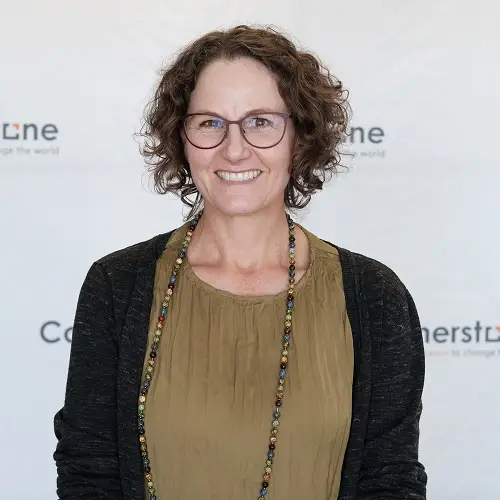
Additional Information:
PGCE Students may need to complete specific prerequisite undergraduate modules to meet entry requirements for specific teaching subject specializations. These modules may be taken prior to or alongside PGCE modules but do not count towards the required PGCE credits.
A Bachelor of Arts (BA) with Alternative Education is a specialized undergraduate degree program that focuses on innovative and non-traditional approaches to education. This program is designed for individuals who are interested in exploring Alternative Educational Philosophies, Methods and practices outside of mainstream educational systems. Here's an overview of what a BA with Alternative Education might entail:
A BA with Alternative Education offers a unique pathway for individuals passionate about reimagining education and making a positive difference in the lives of learners through creative and unconventional educational practices.
Alternative Pedagogies: Study various alternative educational philosophies and pedagogical approaches such as Montessori, Waldorf, Reggio Emilia, democratic education, homeschooling and unschooling.
Critical Analysis of Education: Explore the social, cultural and political contexts of education, questioning traditional educational norms and examining issues of equity, diversity and inclusion.
Experiential Learning: Emphasize hands-on and experiential learning methods that prioritize student engagement, autonomy and personal growth.
Community and Social Change: Investigate the role of education in fostering social change and community development with a focus on empowering individuals and marginalized groups.
Interdisciplinary Studies: Integrate perspectives from various disciplines such as psychology, sociology, anthropology and cultural studies to understand alternative educational paradigms.
Practical Application: Gain practical experience through internships, fieldwork or projects that apply alternative education principles in real-world settings.
Foundations of Education: Introduction to theories and philosophies of education including historical and contemporary perspectives.
Alternative Teaching Methods: Exploration of alternative teaching strategies, curriculum development and assessment techniques aligned with non-traditional educational models.
Social Justice in Education: Examination of educational equity, inclusivity and social justice issues within alternative education contexts.
Educational Innovation and Reform: Discussion of innovative practices and reforms in education aimed at challenging conventional schooling paradigms.
Research and Inquiry Skills: Development of critical thinking, research and inquiry skills to analyze and evaluate alternative education theories and practices.
Graduates of the BA in Alternative Education may pursue various career paths, including:
The BA in Psychology is ideal for those interested in community upliftment and development. As stated, “The range of Bachelor of Art degrees offered at Cornerstone provides students with transferable skills that are available for almost any career choice.” This qualification positions graduates to influence behavior and implement change across various sectors, including education, social work, and mental health.
PGCE stand for Postgraduate Certificate in Education. It is a qualification that provides training and preparation for individuals who aspire to become teachers or educators in primary or secondary schools. Here's a brief overview of PGCE:
Overall, the PGCE is a respected qualification that prepares individuals for a rewarding and impactful career in teaching. It provides the foundational knowledge and practical experience necessary to excel in the classroom and positively contribute to the field of education. We offer both the Foundational and Intermediate Phases.
Purpose: The PGCE is designed to equip graduates with the necessary knowledge, skills and understanding to become effective teachers. It combines academic study with practical teaching experience.
Critical Analysis of Education: Explore the social, cultural and political contexts of education, questioning traditional educational norms and examining issues of equity, diversity and inclusion.
Experiential Learning: Emphasize hands-on and experiential learning methods that prioritize student engagement, autonomy and personal growth.
Structure: PGCE programs typically involve a combination of theoretical coursework and practical teaching placements in schools. The coursework covers topics such as educational theory, curriculum development, teaching methods, assessment and classroom management.
Duration: PGCE Programs usually last one academic year if pursued full-time. Part-time options may be available, extending the duration accordingly.
Entry Requirements: Applicants to PGCE programs generally need a relevant undergraduate degree (often in a subject related to the are they wish to teach) and sometimes require specific academic qualifications in English and Mathematics.
Teaching Placements: One of the key components of a PGCE is the teaching placement(s) in schools where trainee teachers gain hands-on experience under the guidance of experienced mentors. These placements allow trainees to apply their learning in real classroom settings.
Assessment: Assessment methods for PGCE programs may include written assignments, reflective journals, lesson observations and presentations. Trainee teachers are assessed on their teaching practice, academic work and professional conduct.
Cornerstone Institute's School of Education offers a transformative journey for aspiring educators. Our combination of an excellent reputation, world-class accreditation, cutting-edge research, expert faculty, modern teaching methods, and a supportive community equips you with the knowledge, skills, and experience to excel in the dynamic world of education and make a lasting impact on the lives of your students. Join us and become a changemaker in the future of education.
Hover over a staff member’s image and click the ‘View Details‘ button to access their biography.

Deputy Dean: School of Education

Deputy Dean: School of Education
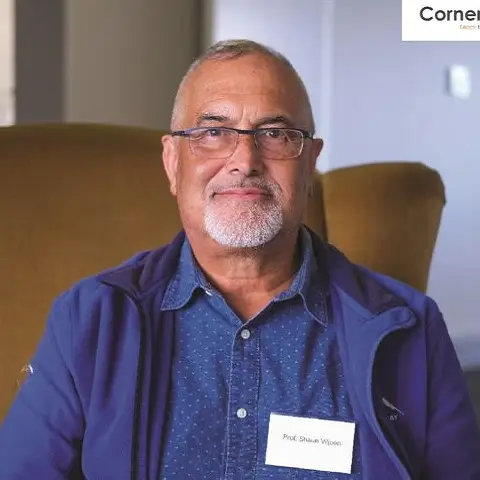
Research Associate
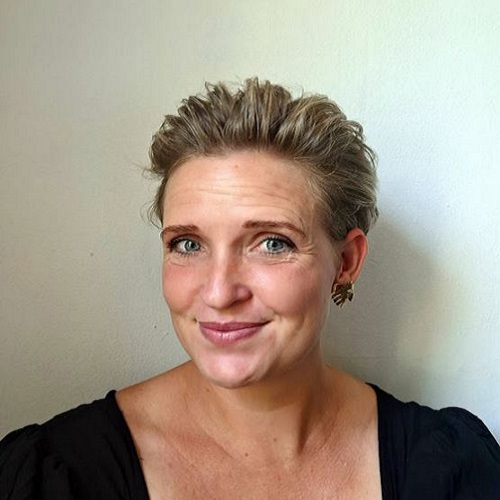
Lecturer
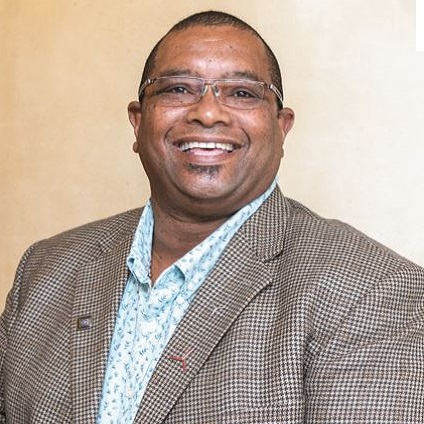
Academic Lecturer
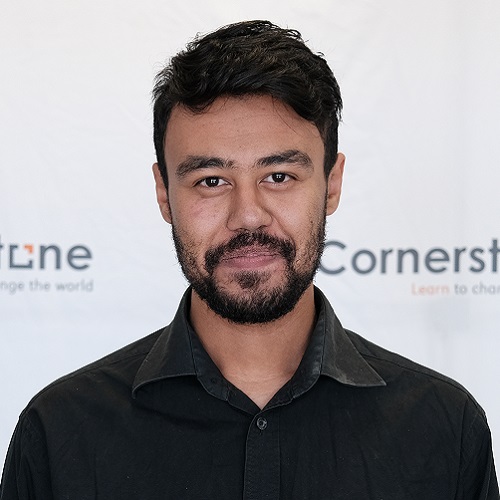
Senior Academic Administrator
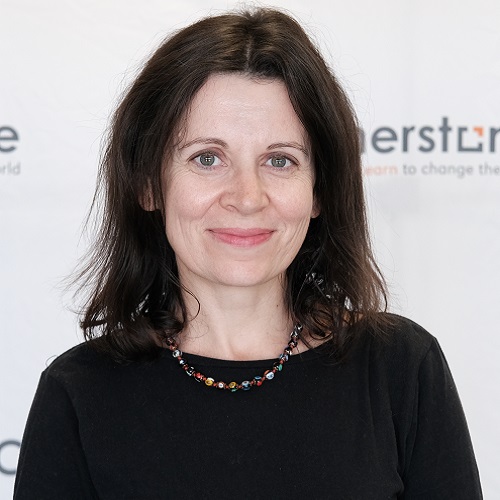
Lecturer

Lecturer
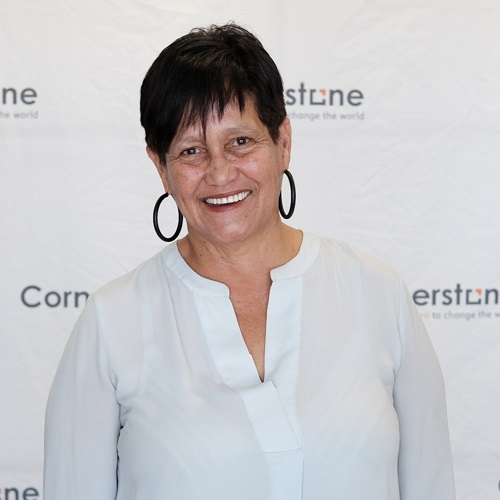
Academic Lecturer

Senior Lecturer

Academic Administrator
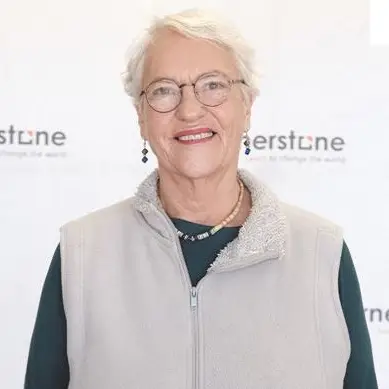
Academic Lecturer

Lecturer

Senior Lecturer
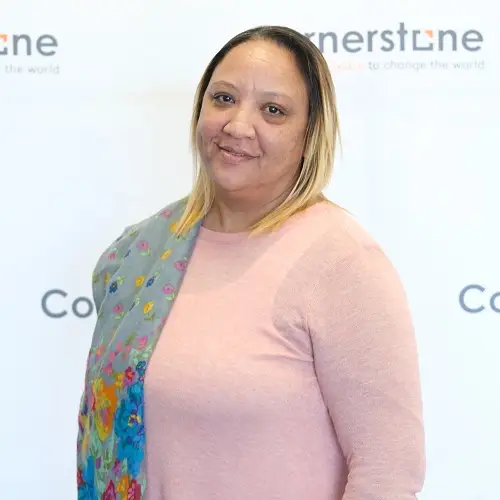
Faculty Officer/Lecturer

Faculty Officer/Lecturer
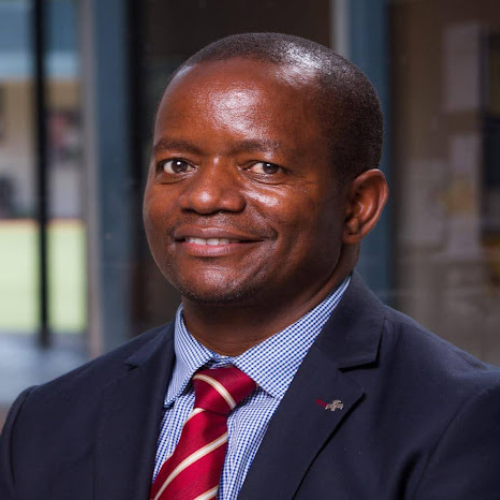
Senior Lecturer
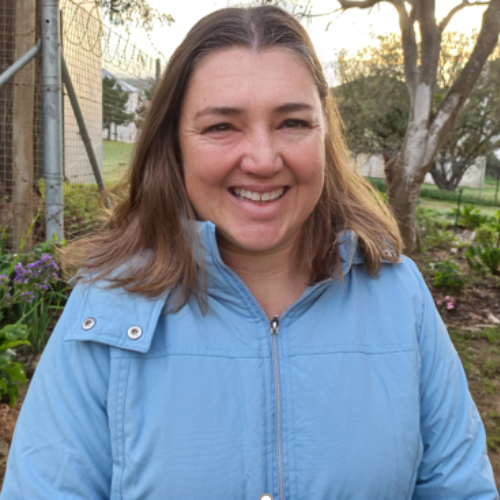
Lecturer
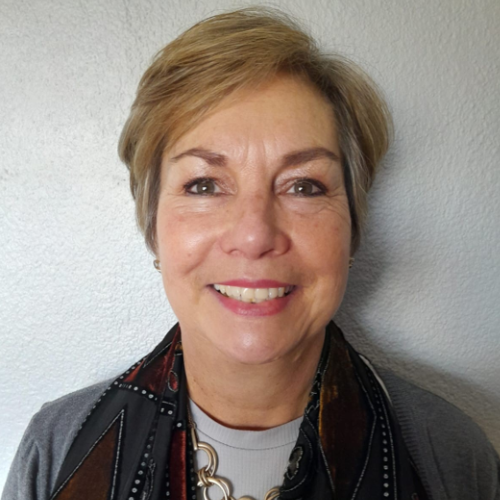
Lecturer

Lecturer

Academic Administrator
In 2023, I began my journey with Cornerstone to pass a certificate cum laude. The PGCE program was intense and challenging but well-structured. I completed it in a year, specializing in the Foundation Phase. Throughout my journey, the support of my lecturers and fellow students was invaluable. I am now an IC lecturer and grateful for the opportunities my PGCE has opened up. Studying while being a mom and living with epilepsy was not easy, but having a supportive community made all the difference. I urge all students to form support groups and put their minds to the mission at hand.
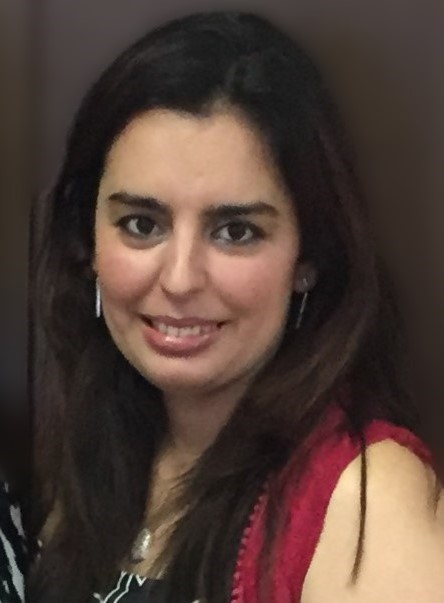
Date: 23 September 2024Format: Online DialogueSpeakers: Prof. Grant Farred & Prof. Crain SoudienIn this intellectually rich session, author Prof. Grant…
Dominic Cranfield’s Journey with a BA in Alternative Education Dominic Cranfield’s experience pursuing a Bachelor of Arts in Alternative Education…
Embark on your PGCE Journey with Cornerstone Institute: A message from Dr. Susan Gredley, Deputy Dean of Education Hello future…
The sudden death of my dear friend Noel Daniels, who was CEO of Cornerstone Institute, where I now work in…
Explore the international reach of our student community as they engage in learning both online and on campus

Botswana
1
China
9
Germany
1
Hong Kong
1
Indonesia
1
Ireland
1
Kenya
1
Korea (Democratic People's Republic of)
3
Korea (Republic of)
12
Macoa
1
None
4
Namibia
3
New Zealand
1
Qatar
2
Qatar
1
Saudi Arabia
6
South Africa
1263
Taiwan
1
Thailand
4
United Arab Emirates
1
Venezuela (Bolivarian Republic of)
1
Vietnam
4
Zambia
2
Zimbabwe
1
Total:
1326